News
-
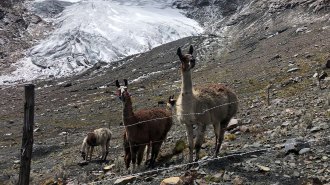 Animals
AnimalsAt the foot of a melting glacier in Peru, llamas helped revitalize the land
A partnership between scientists and farmers suggests how llama herding can mitigate some of the impacts of climate change.
-
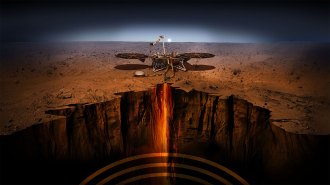 Planetary Science
Planetary ScienceMarsquakes and meteorite hits show Mars has a dense liquid metal core
Mars’ dense liquid iron core is wrapped in a layer of molten rock, which threw off previous measurements of the Red Planet’s heart.
-
 Life
LifeSee the wonders of two newfound deep-sea coral reefs off the Galápagos
Coral reefs around the world are in trouble. But these reefs in the Galápagos Island Marine Reserve have yet to be damaged by humans.
-
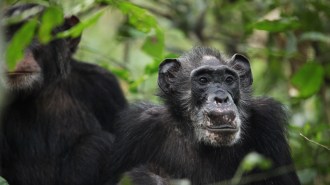 Anthropology
AnthropologySurprisingly long-lived wild female chimps go through menopause
Chimpanzees in Uganda are the first known example of wild, nonhuman primates experiencing the hormonal changes, raising questions about how menopause evolved.
By Bruce Bower -
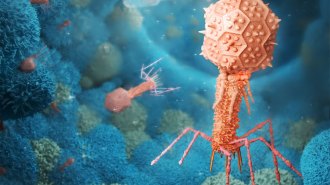 Life
LifeHuman cancer cells might slurp up bacteria-killing viruses for energy
In the lab, human cancer cells show signs of cell growth after ingesting bacteria-killing viruses, a hint our cells might use bacteriophages as fuel.
-
 Physics
PhysicsHow quantum ‘squeezing’ will help LIGO detect more gravitational waves
An upgrade to LIGO that comes from exploiting a quantum rule known as the Heisenberg uncertainty principle makes it easier to detect spacetime ripples.
-
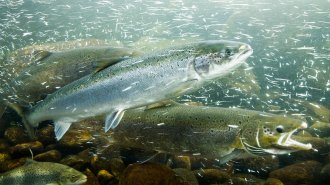 Animals
AnimalsPumping cold water into rivers could act as ‘air conditioning’ for fish
Hundreds of salmon, trout and other fish sought shelter from summer heat in human-made shelters, suggesting a way to help fish adapt to river warming.
By Nikk Ogasa -
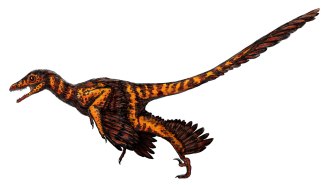 Paleontology
PaleontologyDinosaur feathers may have been more birdlike than previously thought
Feather proteins can change during fossilization, raising questions about what dinosaur feathers really can tell us about feather evolution.
-
 Astronomy
AstronomyA rare glimpse at a relatively nearby supernova offers clues to how stars die
Thanks to its home in the Pinwheel galaxy, a favorite of amateur astronomers, researchers have monitored SN 2023ixf since shortly after it exploded.
By Elise Cutts -
 Animals
AnimalsHow sea anemones living on deep-sea hydrothermal vents avoid metal poisoning
The anemone Alvinactis idsseensis dominates its toxic environment thanks to an unusual number of genes geared toward protecting cells from heavy metals.
-
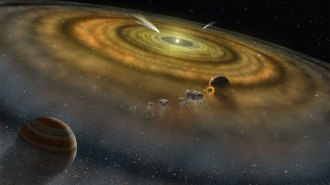 Planetary Science
Planetary ScienceGiant planet ‘destabilization’ may have coincided with the birth of Earth’s moon
New meteorite data suggest the orbits of the giant planets abruptly changed about 60 million to 100 million years after the solar system started forming.
By Bas den Hond -
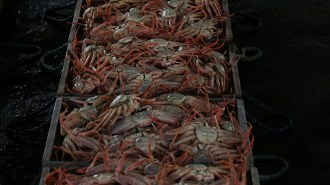 Life
Life10 billion snow crabs have disappeared off the Alaskan coast. Here’s why
In the eastern Bering Sea, the snow crab population plummeted after a marine heat wave in 2018. The crabs may have starved, a new study finds.
By Jude Coleman